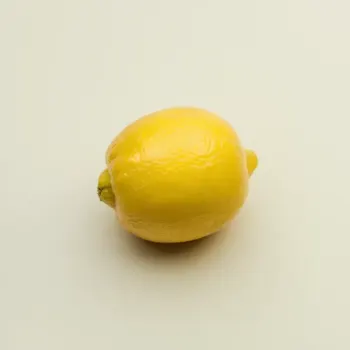Lemon Juice and Vinegar are acidic ingredients used in cooking for flavoring, tenderizing, and preserving, with distinct tastes: lemon juice offers a citrus note, ideal for light dishes and marinades, while vinegar provides a sharper tang suitable for pickling, robust sauces, and dressings.

Lemon juice is the tangy liquid extracted from lemons. It's high in vitamin C and offers a bright, citrus flavor to dishes. Its natural acidity can enhance flavors, tenderize meats, and act as a preservative.

Vinegar is a sour liquid produced through the fermentation of ethanol by acetic acid bacteria. It comes in various forms such as apple cider, white, balsamic, and rice vinegar, each with its distinct flavor profile and culinary uses.
While both are acidic, lemon juice boasts a fresh citrus flavor that is often used in lighter dishes, marinades, and dressings, whereas vinegar has a sharper tang and is used for pickling, sauces, and as a cleaning agent. Vinegar's flavor varies greatly depending on its source, ranging from the sweetness of balsamic to the subtle bite of rice vinegar.

Your ultimate Recipe Box, Meal Planner, and Cooking Class all in one
Best used in vinaigrettes for green salads, lemon juice pairs well with olive oil and fresh herbs. Expect a fresh, vibrant taste. Tip: Whisk with Dijon mustard for an emulsified dressing. Suitable for robust salads like potato or pasta salad. Balsamic vinegar adds sweetness, while apple cider vinegar offers a fruity tang. Tip: Gradually mix in the vinegar to balance the acidity.
Ideal for seafood and chicken, lemon juice tenderizes with a gentler flavor. Expect a subtle zest. Tip: Combine with herbs and garlic for maximum flavor infusion. Works well for red meats and pickled vegetables. The acidic nature of vinegar can break down tough fibers. Tip: Use in moderation to prevent overpowering the dish.
Provides a zesty kick to baked goods like lemon bars or muffins. It can also activate baking soda. Tip: Balance with sugar to avoid excessive tartness. Used in pie crusts and cake batters to add lift and lightness. Apple cider vinegar is commonly used. Tip: It's often paired with baking soda as a leavening agent.
Lemon juice is rich in vitamin C and has fewer calories, while vinegar contains trace amounts of vitamins and minerals.
| Nutrient | Vinegar ( per Tablespoon ) | Lemon Juice ( per Tablespoon ) |
|---|---|---|
| Fat | 0g | 0g |
| Sodium | 0mg | 0mg |
| Calcium | 1mg | 1mg |
| Calories | 3 | 4 |
| Vitamin C | 0mg | 6mg |
| Carbohydrates | 0g | 1g |
Yes, lemon juice can be used as a natural cleaner similar to vinegar, but it may not be as potent as some types of vinegar like white vinegar.
It depends on personal taste and the type of food being marinated. Lemon juice is better for seafood and poultry, while vinegar is great for tougher meats.
Yes, vinegar can often be substituted for lemon juice in baking, but it will not provide the same citrus flavor.
Both lemon juice and vinegar are acidic, but vinegar typically has a higher acidity level, which varies depending on the type of vinegar.
Lemon juice contains vitamin C and slightly fewer calories, making it a nutritious choice, though the difference is minimal in small quantities.